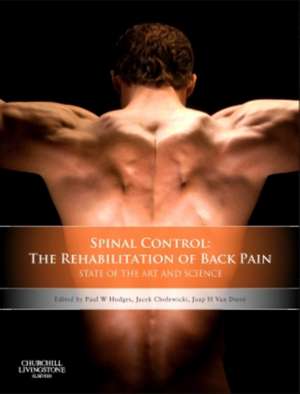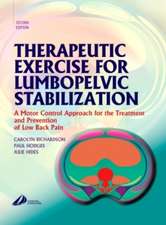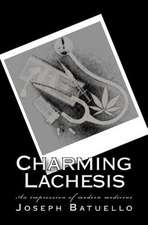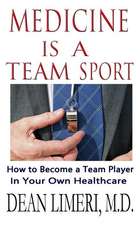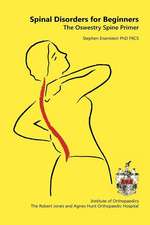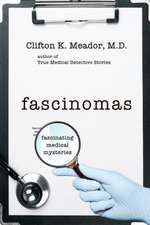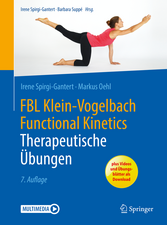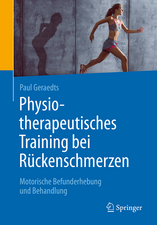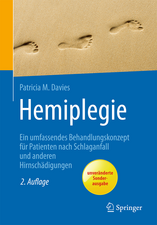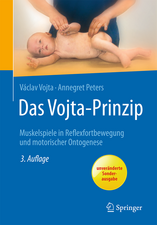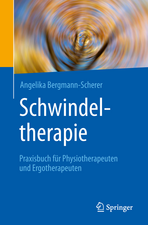Spinal Control: The Rehabilitation of Back Pain: State of the art and science
Editat de Paul W. Hodges, Jacek Cholewicki, Jaap H van Dieenen Limba Engleză Hardback – 11 iul 2013
Spinal Control also includes contributions that put forward different sides of critical arguments (e.g. whether or not to focus on training the deep muscles of the trunk) and then bring these arguments together to help both scientists and clinicians better understand the convergences and divergences within this field.
On the one hand, this book seeks to resolve many of the issues that are debated in existing literature, while on the other, its contributing opinion leaders present current best practice on how to study the questions facing the field of spine control, and then go on to outline the key directions for future research.
Spinal Control - the only expert resource which provides a trusted, consensus approach to low back pain rehabilitation for both clinicians and scientists alike!
Preț: 400.76 lei
Preț vechi: 421.86 lei
-5% Nou
Puncte Express: 601
Preț estimativ în valută:
76.70€ • 79.78$ • 63.32£
76.70€ • 79.78$ • 63.32£
Carte disponibilă
Livrare economică 22 martie-05 aprilie
Livrare express 11-15 martie pentru 54.91 lei
Preluare comenzi: 021 569.72.76
Specificații
ISBN-13: 9780702043567
ISBN-10: 0702043567
Pagini: 338
Ilustrații: 102 illustrations
Dimensiuni: 189 x 246 x 23 mm
Greutate: 0.96 kg
Ediția:New.
Editura: Elsevier
ISBN-10: 0702043567
Pagini: 338
Ilustrații: 102 illustrations
Dimensiuni: 189 x 246 x 23 mm
Greutate: 0.96 kg
Ediția:New.
Editura: Elsevier
Cuprins
Ch 1: IntroductionPaul W. Hodges, Jacek Cholewicki, Jaap H. van Dieën
Section 1 - Mechanical Spine Models
Ch 2: Cholewicki: Spine systems science: a primer on the systems approachN. Peter Reeves, Jacek Cholewicki
Ch 3: Computational models for trunk trajectory planning and load distribution: a test-bed for studying various clinical adaptation and motor control strategies of low back pain patientsMohamad Parnianpour
Ch 4: Mechanical changes in the spine in back painGreg Kawchuk
Section 2 - Motor Control of the Spine
Ch 5: Spine function and low-back pain: interactions of active and passive structuresJaap H. van Dieën, Idsart Kingma
Ch 6: Adaptation and rehabilitation: From motoneurones to motor cortex and behaviour Paul W. Hodges
Ch 7: Opinions on the links between back pain and motor control: the disconnect between clinical practice and researchStuart McGill
Ch 8: The kinesiopathologic model and mechanical low back painLinda R. Van Dillen, Shirley A. Sahrmann, Barbara J. Norton
Ch 9: The relationship between control of the spine and low back pain: a clinical researcher's perspectiveJulie A. Hides
Ch 10: Existing muscle synergies and low back pain: a case for preventative interventionJack P. Callaghan, Erika Nelson-Wong
Ch 11: Trunk muscle control and back pain: chicken, egg, neither or both?G. Lorimer Moseley
Section 3 - Proprioceptive Systems
Ch 12: Altered variability in proprioceptive postural strategy in people with recurrent low back painSimon Brumagne, Lotte Janssens, Kurt Claeys, Madelon Pijnenburg
Ch 13: Proprioceptive contributions from paraspinal muscle spindles to the relationship between control of the trunk and back painJoel G. Pickar
Ch 14: Time-dependent mechanisms that impair muscle protection of the spine. Patricia Dolan, Michael A. Adams
Section 4 - Clinical Evidence of Control Approach
Ch 15: Effectiveness of exercise therapy for chronic non-specific low-back painMarienke van Middelkoop, Sidney Rubinstein, Arianne Verhagen, Raymond Ostelo, Bart Koes, Maurits van Tulder
Section 5 - State-of-the-Art Reviews
Ch 16: How can models of motor control be useful for understanding low back pain? (Summary chapter 1)N. Peter Reeves, Jacek Cholewicki, Mark Pearcy, Mohamad Parnianpour
Ch 17: Targeting interventions to patients: development and evaluation (Summary chapter 2)Linda van Dillen, Maurits van Tulder
Ch 18: Motor control changes and low-back pain, cause or effect? (Summary chapter 3)Jaap H. van Dieën, G. Lorimer Moseley, Paul W. Hodges
Ch 19: What is the relation between proprioception and low back pain? (Summary chapter 4)Simon Brumagne, Patricia Dolan, Joel G. Pickar
Ch 20: Motor control of the spine and changes in pain: Debate about the extrapolation from research observations of motor control strategies to effective treatments for back pain (Summary chapter 5)Paul W. Hodges, Stuart McGill, Julie A. Hides
Section 6 - State-of-the-Art Approach to Clinical Rehabilitation of Low Back and Pelvic Pain
Ch 21: Integrated clinical approach to motor control interventions in low back and pelvic painPaul W. Hodges, Linda van Dillen, Stuart McGill, Simon Brumagne, Julie A. Hides, G. Lorimer Moseley
Section 1 - Mechanical Spine Models
Ch 2: Cholewicki: Spine systems science: a primer on the systems approachN. Peter Reeves, Jacek Cholewicki
Ch 3: Computational models for trunk trajectory planning and load distribution: a test-bed for studying various clinical adaptation and motor control strategies of low back pain patientsMohamad Parnianpour
Ch 4: Mechanical changes in the spine in back painGreg Kawchuk
Section 2 - Motor Control of the Spine
Ch 5: Spine function and low-back pain: interactions of active and passive structuresJaap H. van Dieën, Idsart Kingma
Ch 6: Adaptation and rehabilitation: From motoneurones to motor cortex and behaviour Paul W. Hodges
Ch 7: Opinions on the links between back pain and motor control: the disconnect between clinical practice and researchStuart McGill
Ch 8: The kinesiopathologic model and mechanical low back painLinda R. Van Dillen, Shirley A. Sahrmann, Barbara J. Norton
Ch 9: The relationship between control of the spine and low back pain: a clinical researcher's perspectiveJulie A. Hides
Ch 10: Existing muscle synergies and low back pain: a case for preventative interventionJack P. Callaghan, Erika Nelson-Wong
Ch 11: Trunk muscle control and back pain: chicken, egg, neither or both?G. Lorimer Moseley
Section 3 - Proprioceptive Systems
Ch 12: Altered variability in proprioceptive postural strategy in people with recurrent low back painSimon Brumagne, Lotte Janssens, Kurt Claeys, Madelon Pijnenburg
Ch 13: Proprioceptive contributions from paraspinal muscle spindles to the relationship between control of the trunk and back painJoel G. Pickar
Ch 14: Time-dependent mechanisms that impair muscle protection of the spine. Patricia Dolan, Michael A. Adams
Section 4 - Clinical Evidence of Control Approach
Ch 15: Effectiveness of exercise therapy for chronic non-specific low-back painMarienke van Middelkoop, Sidney Rubinstein, Arianne Verhagen, Raymond Ostelo, Bart Koes, Maurits van Tulder
Section 5 - State-of-the-Art Reviews
Ch 16: How can models of motor control be useful for understanding low back pain? (Summary chapter 1)N. Peter Reeves, Jacek Cholewicki, Mark Pearcy, Mohamad Parnianpour
Ch 17: Targeting interventions to patients: development and evaluation (Summary chapter 2)Linda van Dillen, Maurits van Tulder
Ch 18: Motor control changes and low-back pain, cause or effect? (Summary chapter 3)Jaap H. van Dieën, G. Lorimer Moseley, Paul W. Hodges
Ch 19: What is the relation between proprioception and low back pain? (Summary chapter 4)Simon Brumagne, Patricia Dolan, Joel G. Pickar
Ch 20: Motor control of the spine and changes in pain: Debate about the extrapolation from research observations of motor control strategies to effective treatments for back pain (Summary chapter 5)Paul W. Hodges, Stuart McGill, Julie A. Hides
Section 6 - State-of-the-Art Approach to Clinical Rehabilitation of Low Back and Pelvic Pain
Ch 21: Integrated clinical approach to motor control interventions in low back and pelvic painPaul W. Hodges, Linda van Dillen, Stuart McGill, Simon Brumagne, Julie A. Hides, G. Lorimer Moseley
